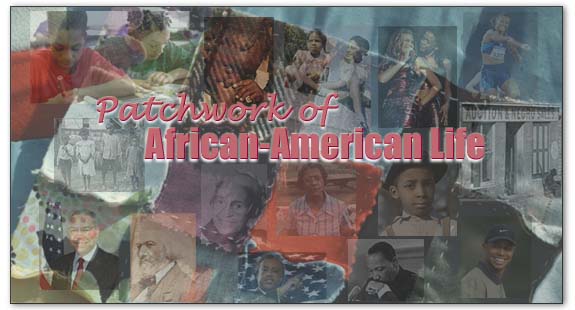
![]()
Introduction
The following six Web sites were created as models to suggest ways to integrate the World Wide Web and videoconferencing into classroom learning. African-American History was chosen as a topic because of its importance, popularity and the wealth of Internet resources available on the topic. What we hope to add to this richness are some specific strategies for integrating the Web into learning. So rather than merely send learners to a Web site, we've arranged separate formats designed to support different kinds of learning. Read the blurbs below or check out Working the Web for Education to help you decide which activities you might want to use.
Hotlist

|
Black History Hotlist is a starting point for anyone studying African-American events and issues. If you have your own learning activities in mind, you might use these links as raw material or the place to begin independent research. |
![]()
Interactive Treasure Hunt

|
If you want to test your knowledge of African-American history (and even develop an essay on the topic), try the Interactive Treasure Hunt & Quiz. When you know the background information on a topic, learning more and feeling connected to the subject come naturally. |
![]()
Subject Sampler

|
Maybe you don't feel personally connected to African American issues. We think that once you care about a subject, it will be easier to learn about it. The Subject Sampler Sampling African America helps you engage in the topic and explore things about it that personally interest you. |
![]()
WebQuests
Why worry about stuff that happened in the days when Eisenhower was President and Elvis was King? In the WebQuest Little Rock 9, Integration 0?, students learn about nine African-American students who, back in 1957, chose to attend an all-white high school in Little Rock, Arkansas. They took these steps with the power of the U.S. Supreme Court behind them, but with armed soldiers blocking the entrance before them. Still, this WebQuest isn't about history, it's about the world we live in and the choices our communities have made in the past and students will make in the future.
![]()
"Beginning in the 1930s, the U.S. Public Health Service began treatment of 399 African-American men for 'bad blood.' The service was actually conducting a study on the effects of syphilis on the human . bodyThe men were never told they had syphilis and were denied access to treatment years after penicillin came into use in 1947. By the time the study was exposed in 1972, 28 men had died of syphilis, 100 others were dead of related complications, at least 40 wives had been infected and 19 children had contracted the disease at birth." (Quoted from CNN Interactive)
In the WebQuest Tuskegee Tragedy, students explore the issues of the Tuskegee Study and question the comparisons some people make to the study and such topics as abortion, gun control, and concentration camp experiments.
![]()

Created January, 1996.
Last revised February, 2005
Created by Tom March,
Applications Design Team/Wired Learning